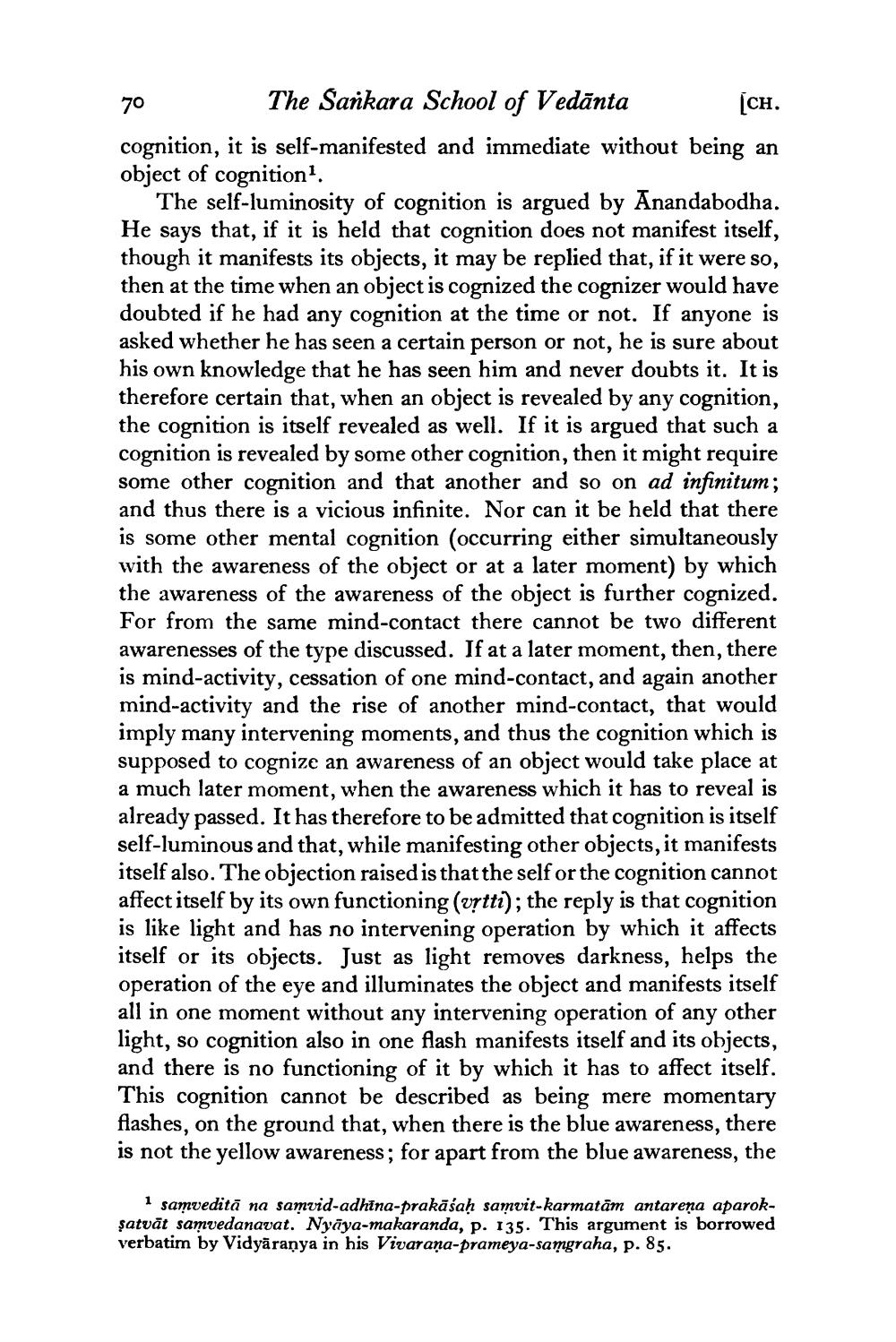________________
70
The Sankara School of Vedānta [CH. cognition, it is self-manifested and immediate without being an object of cognition
The self-luminosity of cognition is argued by Anandabodha. He says that, if it is held that cognition does not manifest itself, though it manifests its objects, it may be replied that, if it were so, then at the time when an object is cognized the cognizer would have doubted if he had any cognition at the time or not. If anyone is asked whether he has seen a certain person or not, he is sure about his own knowledge that he has seen him and never doubts it. It is therefore certain that, when an object is revealed by any cognition, the cognition is itself revealed as well. If it is argued that such a cognition is revealed by some other cognition, then it might require some other cognition and that another and so on ad infinitum; and thus there is a vicious infinite. Nor can it be held that there is some other mental cognition (occurring either simultaneously with the awareness of the object or at a later moment) by which the awareness of the awareness of the object is further cognized. For from the same mind-contact there cannot be two different awarenesses of the type discussed. If at a later moment, then, there is mind-activity, cessation of one mind-contact, and again another mind-activity and the rise of another mind-contact, that would imply many intervening moments, and thus the cognition which is supposed to cognize an awareness of an object would take place at a much later moment, when the awareness which it has to reveal is already passed. It has therefore to be admitted that cognition is itself self-luminous and that, while manifesting other objects, it manifests itself also. The objection raised is that the self or the cognition cannot affect itself by its own functioning (vrtti); the reply is that cognition is like light and has no intervening operation by which it affects itself or its objects. Just as light removes darkness, helps the operation of the eye and illuminates the object and manifests itself all in one moment without any intervening operation of any other light, so cognition also in one flash manifests itself and its objects, and there is no functioning of it by which it has to affect itself. This cognition cannot be described as being mere momentary flashes, on the ground that, when there is the blue awareness, there is not the yellow awareness; for apart from the blue awareness, the
samveditā na samvid-adhina-prakāśaḥ samvit-karmatām antareņa aparokşatvāt samvedanavat. Nyāya-makaranda, p. 135. This argument is borrowed verbatim by Vidyāranya in his Vivarana-prameya-samgraha, p. 85.




